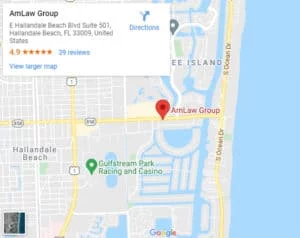What’s The Difference between Visa vs Status vs I-94?
Visa vs. Status: A Clearer Picture
Navigating the process of entering the United States can be confusing, especially when it comes to understanding the difference between visas and status.
While these terms are often used interchangeably, they represent distinct concepts with crucial implications for your stay in the country.
What is a Visa?
- Think of it as a “key”: A visa is a physical document issued by a US consulate that allows you to travel to the United States. It grants you initial permission to enter, but doesn’t guarantee your legal stay.
- Obtained at a consulate: You apply for a visa at a US consulate abroad, not within the United States.
- Valid for a specific period: The visa has an expiration date, which dictates how long it remains valid for travel.
- Doesn’t grant automatic entry: Even with a valid visa, border agents have the discretion to deny you entry based on their assessment.
- And similar to a traditional “key,” once you’re inside the house, you really don’t need the key as long as you don’t leave the premises.
What is Status?
- Your legal standing in the US: Your status defines your authorized activities and duration of stay in the United States.
- Assigned upon entry: You are granted a specific status when you enter the country, such as “E3 for Australians” working with a job offer.
- Defines your rights and limitations: Each status carries specific rights and limitations you must adhere to. Engaging in activities outside your status can result in deportation.
- Has its own expiration date: The duration of your stay is determined by your status expiration date, which can differ from your visa expiration.
- Overstaying leads to “out of status”: Exceeding your authorized stay under your allotted status, even with a valid visa, makes you “out of status” and subject to serious legal consequences.
Understanding Expiration Dates:
- Visa expiration: Refers to the validity of your visa document, not your authorized stay.Your status could extend much longer after your visa expires, which is very common, say, for students who might be studying for many years in the U.S.
- Status expiration: Dictates how long you can legally remain in the United States with your specific status.
Do You Need a Lawyer?
Hiring an immigration lawyer is not mandatory for visa applications or entry into the US. However, their expertise can be invaluable in navigating complex processes and avoiding costly mistakes, especially for issues involving status. As mentioned above, if you violate your status in particular there can be very serious consequences that could prevent you from returning to the U.S. in the future–or even lead to deportation.
It’s incredible how many problems arise due to people making mistakes, thinking that they can solve the problems without hiring an attorney. And what they often end up doing is making the problem even worse. Unfortunately, the U.S. government does not make exceptions for people working without an attorney who made serious mistakes. And these mistakes can lead to clients being forced to leave the U.S. or being denied entry back to the U.S. for years to come.
Benefits of an Immigration Lawyer:
- Specialized knowledge: Lawyers understand the intricacies of immigration law and can guide you through the application process efficiently.
- Increased chances of success: Their experience significantly increases your chances of securing a visa or status change.
- Time and stress reduction: They handle the paperwork and legal hurdles, saving you time and stress.
- Representation in legal matters: They can represent you in legal proceedings related to immigration issues.
Understanding the difference between visas and status is crucial for navigating the US immigration system. While hiring an attorney is not always necessary, especially for simple cases like tourist visits, their specialized knowledge and guidance can be invaluable for complex applications or situations. By demystifying these key concepts and making informed decisions, you can ensure a smooth and successful journey to the United States for you and your family.
Ask A Business Immigration Lawyer

Start your new future in the U.S. now!
Related Posts

Miami Office
AmLaw Group
1920 E Hallandale Beach Blvd Suite 709 Hallandale Beach, FL 33009
Copyright 2025 AmLaw Group - All Rights Reserved | Powered by Advantage Attorney Marketing & Cloud Solutions




